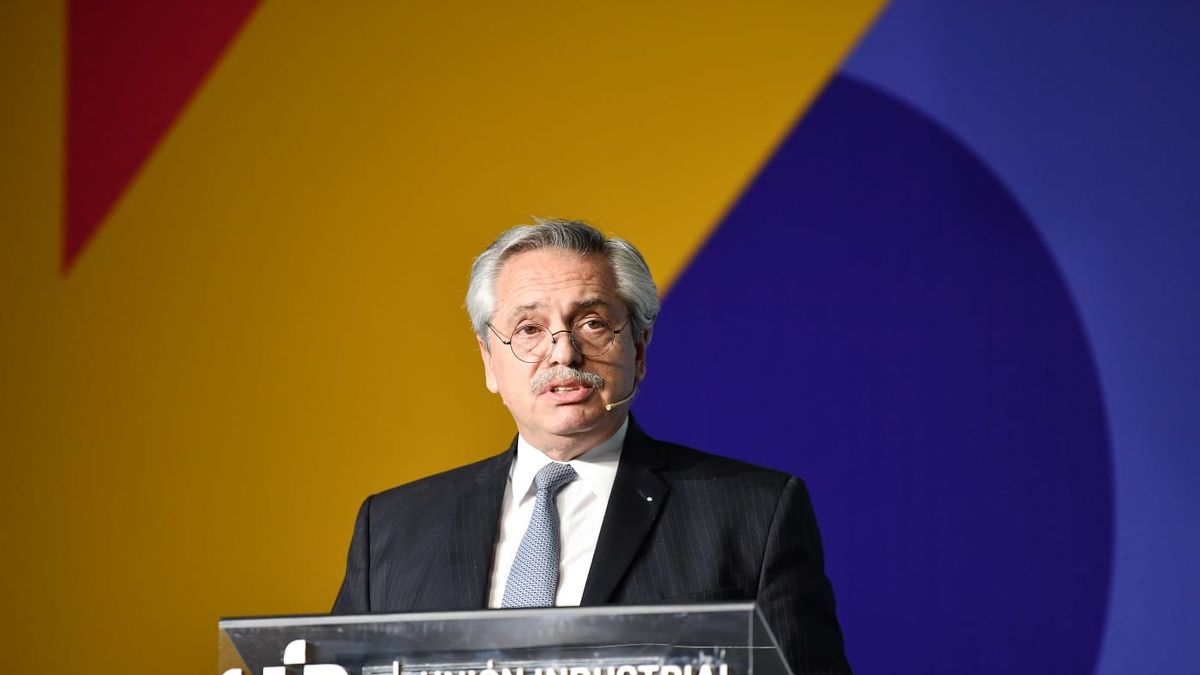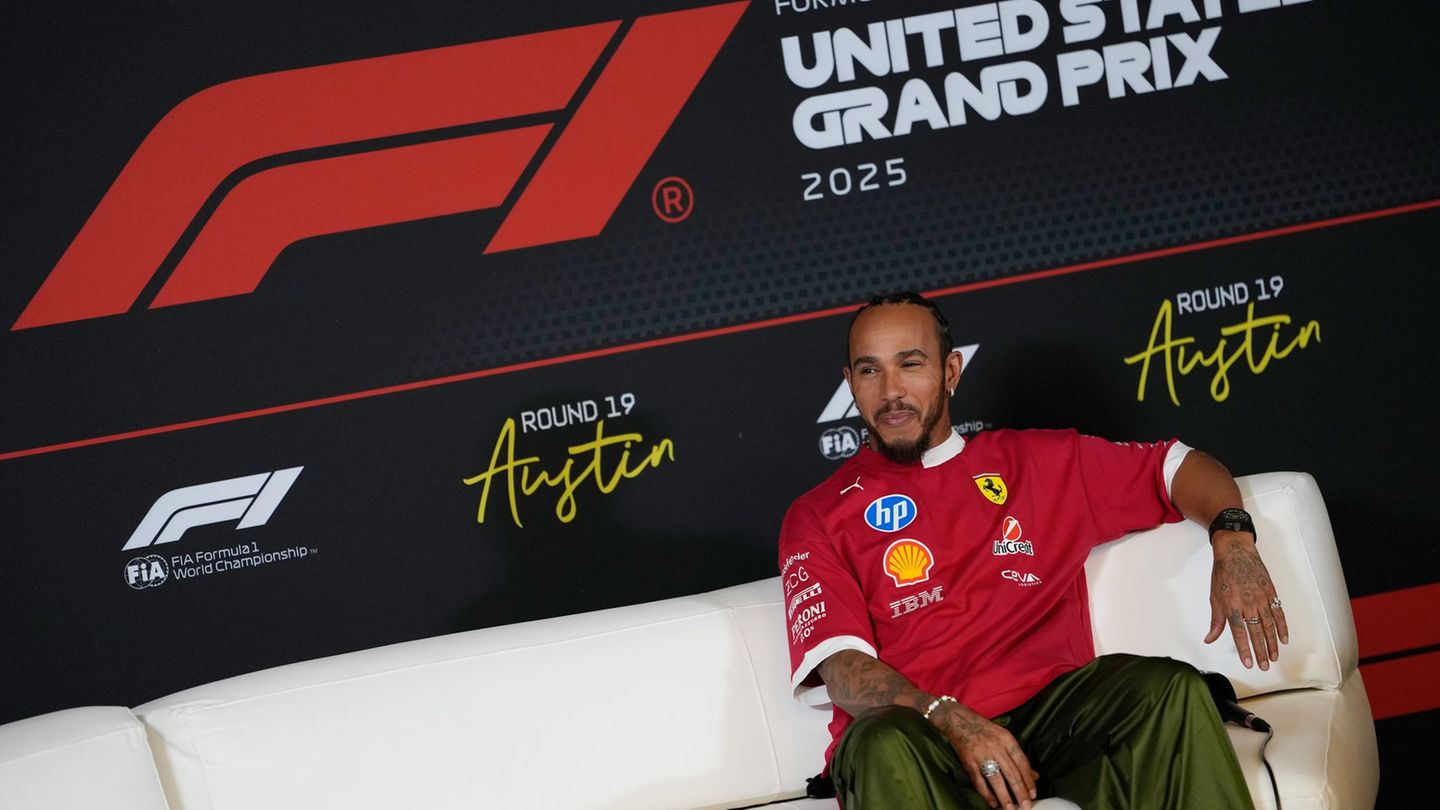“We cannot fail to observe that between 2016 and 2019 we were one of the countries that lost the most industrial capacities,” he said, alluding to the management of Together for Change, when “we suffered a 17% drop in capacity per inhabitant” . “Then the world went through an exceptional moment,” he said regarding the pandemic, which began to impact Argentina four months after his arrival in government. “At that time and well into this year, our main task was to generate productive, social and regional assistance,” he explained.
Following this line, he highlighted the importance of different public policies such as Work and Production Assistance (ATP), Emergency Family Income (IFE) and different containment mechanisms for companies and citizens in the face of restrictions caused by SARS-CoV2.
“Despite such an adverse scenario, the Argentina is going through a clear process of economic recovery“, he emphasized and added that” the damages generated by the drop in GDP in 2020 will already be overcome with the growth we are experiencing. At the beginning of next year, industrial activity will have recovered what was lost since the beginning of the 2018 and 2019 crises “. According to official figures, the government expects economic activity to grow close to 10%, surpassing the decline in 2020.
Although he valued the recovery that the country is going through, he also focused on “development should reach everyone, it should not focus on just a few.” As he considered, “growth with inclusion is necessary to put an end to the culture of disposal” and remarked that the Government is working on this task, which must also include the private sector. “It has to be a fair and restorative growth that faces poverty and puts an end to the hunger suffered by millions of our brothers,” he said.
Regarding the place that the industry occupies in this task, he pointed out that “it is the vanguard of the economic recovery” and insisted that “Argentina is one of the countries where the industry has recovered the most in 2021. We are more connected to the world than Never. Exports show it. The profile of imports is changing and reflects the new incentive scheme. More inputs to produce and fewer finished products, “he explained, adding that based on the change that is taking place in the industry”today 18 of the 24 provinces have more industrial employment than in 2019 “.
The president, faithful to his rhetoric, gave an example to illustrate the situation in the industry. At the time of taking office, he said, 27 out of every 100 patented cars were domestically manufactured. “The current reality is different: 54 out of every 100 are of national production,” he stressed in relation to the implementation of policies aimed at substituting imports due to the need to protect foreign exchange.
On the other hand, he referred to what lies ahead, in this second stage of his mandate, which began after the defeat in the legislative elections. In that sense, he anticipated that “In the coming weeks I will sign a decree for the 2030 productive plan, to empower our productive sectors in the years to come, with new jobs, exports and new industries. This rebirth of Argentina does not exclude anyone, it needs everyone” .
For this reason, he asked those present “take care of the efforts we have made so that our industry can stand up” and highlighted that “We cannot fall into anti-industrial visions, into indiscriminate openings of the economy that destroy national industry. Nor can we fall into socially exclusive policies.”
A highlight of the presidential speech was the one related to the foreign debt and the renegotiation of the Stand-by agreement that the Government carries out with the International Monetary Fund. As reported by Ámbito, the head of state confirmed that this Saturday a delegation from the Executive Branch will travel to Washington to continue dialoguing with the representatives of the body in order to iron out rough spots regarding a future agreement.
“Next week there will be a visit by the technical teams to Washington to continue strengthening that progress,” said Fernández. and he reaffirmed that it is necessary to “solve the problem of foreign debt.” “Last year we closed a successful restructuring. Now we are in dialogue with the IMF. You all know that the loan granted in 2018 is equivalent to all the aid that the IMF gave the world to cope with the damages of the pandemic. If Argentina had those currencies I could face the problems without major worries, “he emphasized.
Regarding the agreement, he insisted again that “we want to generate an agreement that allows us to refinance the very large debt maturities for the next three years to which the government of Mauricio Macri had committed” and added, as he said in previous speeches , that “this will not be at the expense of the development of the country.”
Finally He asked the IMF “that before we close the new agreement, make its evaluation of what was the failed Stand-by program for which US $ 44 billion were disbursed that was misused in paying unsustainable debt and in financing capital outflows.. We need the IMF to do that assessment. That will help us to understand each other. It is a necessary step on this path. In order to write a new page we need to close the previous chapter “.
During the first day of the event, Chief of Staff Juan Manzur told businessmen about the agreement with the Fund: “We want to pay, all we ask is a condition: that they let us grow”.
The official, who was received by the president of the UIA, Daniel Funes de Rioja, said that “The debt was irresponsible, but that’s it, we are not going to cry over spilled milk.”
“We have to solve it and we are going to do it. We are going to put all our effort, we want to solve this problem and we want to pay. Argentina wants to pay. All we ask is a condition, that they let us grow in order to pay.”, he pointed.
At the Industrial Conference, Manzur said he had no doubts that “we are going to reach an agreement – with the International Monetary Fund (IMF) – and it will be the best possible agreement for the Argentine people.”
He acknowledged that there are “difficulties”, but said that they are “absolutely convinced of the potential that the country has.”
For his part, the Chancellor Santiago Cafiero He affirmed that the growth and recovery shown by the Argentine economy “cannot be interrupted by a bad agreement with the International Monetary Fund”, stating that the expected maturities for next year appear as “a stocks for development.”
After participating in one of the panels of the 27 UIA Industrial Conference, which took place at the Parque Norte convention site, the foreign minister said -during a contact with the press- that the Government seeks to reach “an agreement that does not interrupt the economic growth that Argentina is achieving and that all sectors have been standing out with very positive figures.
Source From: Ambito
David William is a talented author who has made a name for himself in the world of writing. He is a professional author who writes on a wide range of topics, from general interest to opinion news. David is currently working as a writer at 24 hours worlds where he brings his unique perspective and in-depth research to his articles, making them both informative and engaging.




